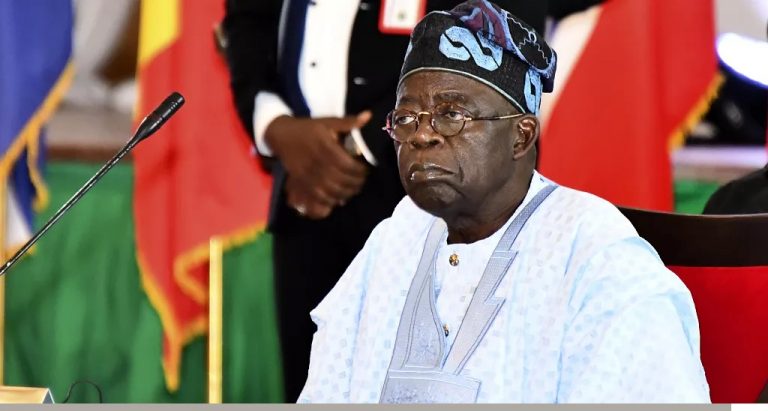
Student Union Government (SUG) leaders from Obafemi Awolowo University (OAU), Ile-Ife, Osun State, and Ahmadu Bello University (ABU), Zaria, Kaduna State, have publicly rejected the rice palliatives distributed by President Bola Tinubu’s administration to SUG presidents in tertiary institutions across Nigeria.
In their statements, the union leaders criticized the distribution as a tokenistic gesture that fails to address the deep-rooted challenges Nigerian students face. Their rejection has also reignited a broader criticism of the government’s increasing reliance on rice distribution as its default response to crises across the country.
Damilola Isaac, the SUG President of OAU, emphatically stated that he had not received any rice palliatives and would reject them outright even if they were delivered. Isaac described the distribution as a distraction from the critical issues plaguing Nigeria’s education sector.
Register for Tekedia Mini-MBA edition 19 (Feb 9 – May 2, 2026).
Register for Tekedia AI in Business Masterclass.
Join Tekedia Capital Syndicate and co-invest in great global startups.
Register for Tekedia AI Lab.
“Our administration is committed to advocating for better educational standards and student welfare, not accepting handouts that do not address systemic challenges,” he said.
Isaac called on the government to focus on meaningful reforms such as reducing tuition fees, improving university infrastructure, and enhancing the quality of education.
“While the government may have good intentions, distributing rice does nothing to address the crumbling education sector or the financial burdens faced by students and their families,” he added.
He reassured the OAU student community of his commitment to championing their interests with integrity and accountability while urging them to disregard claims tying his name to the rice distribution initiative.
At ABU, the President of the Students’ Representative Council, Ibrahim Nazeer, also rejected the palliatives, emphasizing that fairness should be a guiding principle. In a statement released through his media aide, Abdulrazak Shuaibu, Nazeer stated that he would not accept his share unless provisions were made for a significant portion of the student body.
“I will not accept my share unless it is accompanied by a substantial allocation for my fellow students. The essence of leadership is to advocate for collective welfare, not to prioritize personal benefits,” he said.
Nazeer commended President Tinubu for initiatives like the Nigeria Education Loan Fund (NELF), which has benefited many students. However, he urged the government to shift its focus from distributing rice to creating conditions where basic necessities are affordable for all Nigerians.
Students Question Selective Distribution
The distribution process, which allocated two 25kg bags of rice to each SUG president, has also come under scrutiny. Critics argue that it excludes the majority of students, raising questions about fairness and representation.
Oyelakin Mutiullah, a student at the University of Abuja, condemned the selective distribution, stating that it reflects poorly on both the government and student leaders. “It undermines trust when leaders fail to advocate for the collective interests of all students,” he said.
Anas Abdulrahman, a student of Usmanu Danfodiyo University, Sokoto (UDUS), echoed similar sentiments. “We are all Nigerians, and we all face the same hardships. Why should only leaders benefit? It sends the wrong message about governance and equity,” he said.
Tinubu Administration’s Reliance on Rice Palliatives
President Tinubu’s government is increasingly criticized for its tendency to use rice distribution as a one-size-fits-all solution to various crises. Since assuming office in May 2023, Tinubu has announced rice palliative initiatives nine times, covering issues ranging from subsidy removal to natural disasters and cost-of-living crises.
Many believe that this approach highlights a lack of innovative and sustainable policies to tackle the country’s complex challenges. Instead of addressing systemic problems like inflation, unemployment, and poor infrastructure, the government has leaned on rice handouts to create a façade of relief.
The practice has earned the administration a reputation for being reactive rather than proactive, offering short-term fixes while neglecting the long-term consequences of its policies.
Despite the frequent distribution of rice, the economic situation in Nigeria has continued to deteriorate. According to the National Bureau of Statistics (NBS), the country’s annual inflation rate stands at 34.8%, with food inflation even higher at 38.94%. These figures translate to skyrocketing food prices that make even staple items like rice unaffordable for many Nigerians.
The Tinubu administration’s flagship economic policies—such as the removal of the petrol subsidy and the floating of the naira—have compounded the cost-of-living crisis. Many Nigerians, including students, feel these measures have eroded their purchasing power, rendering the government’s rice palliatives ineffective in providing meaningful relief.
The rejection of the rice palliatives by prominent student leaders underpins a broader frustration with the government’s approach to governance. As the backlash grows, it remains to be seen whether the Tinubu administration will reconsider its reliance on rice as a political tool and focus on implementing long-term, sustainable reforms to address Nigeria’s multifaceted challenges.



